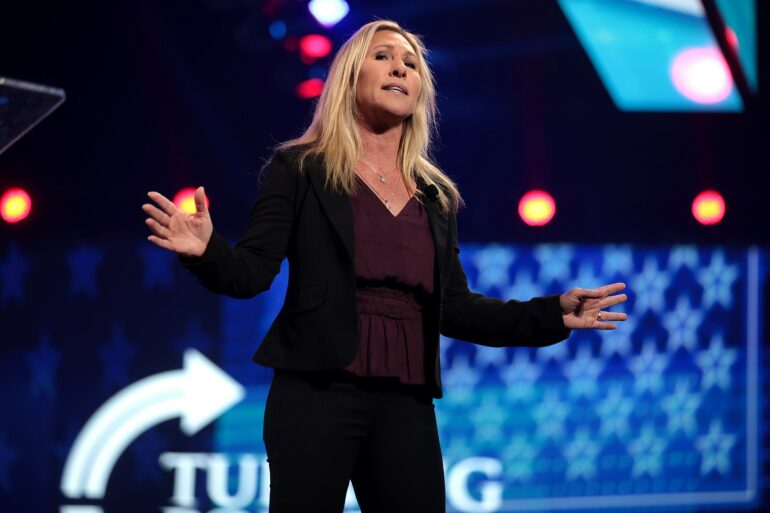A public feud has now erupted between Representative Marjorie Taylor Greene and conservative commentator Mark Levin, reflecting growing tensions within the Republican Party over the future of the MAGA movement and U.S. foreign policy.
The conflict began when Greene appeared on a right-wing media program and sharply criticized Levin’s support for President Donald Trump’s decision to authorize airstrikes on Iranian nuclear facilities.
Greene, a leading voice in the “America First” faction, accused Levin of warmongering and suggested his views were out of step with the movement’s anti-interventionist roots. “His screeching is unbearable,” she said, calling his support for military escalation reckless and politically motivated.
Levin, a longtime Trump ally and influential figure in conservative media, fired back on social media, calling Greene a “shameless nitwit” and accusing her of lacking both judgment and patriotism.
He defended the airstrikes as a necessary response to Iranian aggression and criticized Greene for failing to acknowledge the threats posed to American service members and allies.
The exchange quickly escalated, with Greene demanding Levin be removed from his platform, accusing him of spreading hate and likening his rhetoric to the violent threats she says she often receives.
She claimed that God does not celebrate war or the deaths of children and implied that voices like Levin’s were betraying the moral foundation of the conservative movement.
The dispute highlights a growing divide among Trump-era conservatives: on one side, figures like Greene, Matt Gaetz, and Tucker Carlson advocate for a strict non-interventionist foreign policy.
On the other, voices like Levin and several pro-Israel conservatives insist on maintaining a robust global posture and see American military power as essential to protecting national interests.
At the heart of the conflict is a deeper question about what MAGA stands for in 2025. While Trump remains the dominant figure, the movement he inspired is increasingly split between populist isolationism and traditional conservative hawkishness.
Though Trump has not weighed in on the spat, the Greene-Levin clash is likely to influence the tone of Republican politics heading into the 2026 midterms.
With war fatigue lingering and the conservative base increasingly divided over America’s role abroad, the episode underscores a party struggling to define its post-Trump identity—even while Trump himself remains on the stage.
[READ MORE: Hegseth Insults Fox News Reporter]



